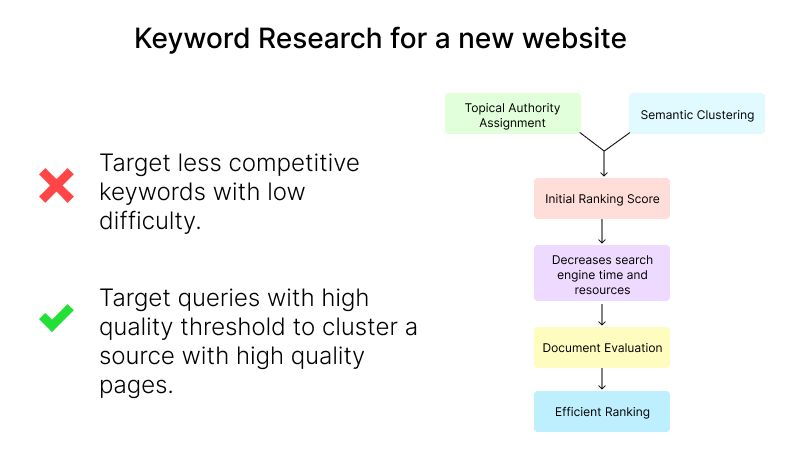Semantic Clustering

🔑 Keyword research is the backbone of the whole SEO strategy.
🚀 You just launched a new website.
🔍 And you searched Google for "Keyword Research."
You'll find most of the blogs ranking on Google preaching the same thing:
📢 "Target low difficulty and less competitive keywords" to rank faster and higher.
But... things work differently at the search engines' end. 🤖
📊 Google assigns an initial ranking score to sources.
✨ This initial ranking score can help decrease a search engine's time and resource cost for evaluating a document to rank it.
📚 The value for this score comes from:
- ✅ Semantic clustering of information
- ✅ Topical authority assignment
🧠 All of this happens under the machine learning algorithms of Google, and this score is different for different sources — and even sub-sections of the same source.
⚡ One of the benefits of assigning an initial ranking score
It helps Google to cluster sources with each other based on:
- 🧩 Content similarity
- 🔗 Links
- 🖼️ Webpage layouts
- 🏢 Organizational and entity profile features
📈 Clustering a source with high-quality documents ranking for queries with a high-quality threshold signals Google to factor in that "high quality" during the assignment of the initial ranking score.
✅ The higher your website’s initial ranking score, the better it would rank initially in Google.
💡 The Takeaway
Try to make your website representative of the quality source clusters for specific topics and contexts.
✨ Focus on becoming the authority for a topic, entity, or phrase group for faster evaluation and a better initial ranking.
📝 PS: I just wrote this post to give words to my thoughts while reading Koray Tugberk GUBUR case studies. Spending the weekend night with semantics doesn't suck. 😉
